Red Sea
Somali waters face renewed piracy threat amid Red Sea conflicts

The Somali coastline, once a notorious hotspot for piracy, is witnessing a resurgence in criminal activity as global shipping reroutes eastward to avoid escalating Red Sea conflicts. According to marine insurance provider Skuld, piracy risks have increased sharply, with more than 600 vessels transiting through Somali waters monthly, double the volume from the previous year.
The ongoing Houthi-led attacks in the Red Sea and the Bab el-Mandeb Strait have driven vessels away from these high-risk areas into Somali waters. Using advanced weaponry such as missiles and waterborne drones, Houthis have targeted vessels linked to Israel and its allies, further destabilizing a critical maritime chokepoint. This shift has left the Somali coastline exposed to pirates seeking high-value targets.
Somali pirates are increasingly operating farther offshore, using hijacked “mother ships” as floating bases. The reported hijacking of the Bangladeshi vessel Abdullah, culminating in a $5 million ransom, underscores the growing sophistication and financial stakes of these operations. Some attacks have occurred as far as 800 nautical miles into the Indian Ocean, highlighting the broadening threat.
The U.S.-led Poseidon Archer and EU’s Aspides operations, aimed at securing the Red Sea, have inadvertently left Somali waters more vulnerable. This resource redistribution has allowed pirates to exploit the under-guarded shipping lanes with little deterrence.
Shipping companies are urged to adopt BMP5 protocols, which include rerouting vessels, deploying armed security personnel, and enhancing crew training. Real-time monitoring by organizations such as the UK Maritime Trade Operations (UKMTO) also plays a critical role in mitigating risks.
Experts stress that a purely military response cannot eradicate piracy. Long-term solutions require addressing underlying issues, including Somalia’s weak governance, economic instability, and illegal fishing that depletes local resources. Investment in local communities is vital to offering alternatives to piracy as a livelihood.
The resurgence of Somali piracy threatens to disrupt international trade and increase shipping costs as insurers adjust premiums to account for heightened risks. Moreover, the situation underscores the interconnectedness of regional conflicts and maritime security, where instability in one area can have cascading effects on global commerce.
Efforts to stabilize the region will require a coordinated approach involving robust naval patrols, enforcement of international maritime laws, and socio-economic development in Somalia. Without these measures, the resurgence of piracy could escalate, posing significant challenges to the global shipping industry.
Red Sea
Horn of Africa on Edge as Ethiopia Internationalizes Its Battle for the Coast

Ethiopia Steps Up Global Diplomacy in Renewed Push for Red Sea Access, Ambassadors Say.
Ethiopia is intensifying its diplomatic outreach to build international support for its long-standing quest to secure reliable access to the sea, a priority that senior diplomats say has regained national urgency amid shifting political dynamics around the Horn of Africa.
In a series of coordinated statements, Ethiopian ambassadors posted across Africa, the Middle East, and Europe said the government is now mobilizing its entire diplomatic apparatus — including diaspora networks — to frame sea access as a matter of national survival and economic justice.
Rashid Mohammed, Ethiopia’s ambassador to Zimbabwe and representative to Mauritius, Zambia, and COMESA, said Ethiopia’s loss of direct access to the Red Sea was the result of what he called “an unjust political decision and conspiracy” that has undermined the country’s strategic and economic position for more than three decades.
For a nation of more than 120 million people with one of Africa’s largest economies, he said, remaining permanently landlocked is “neither sustainable nor consistent with international norms that support fair access to global trade routes.”
Rashid added that Ethiopia’s current approach is rooted in principles of mutual benefit, arguing that any negotiated arrangement for sea access would strengthen economic integration across the Horn of Africa and help stabilize a region where security, energy, and trade concerns are deeply intertwined.
Ethiopia’s Ambassador to Kuwait, Sied Muhumed, echoed that message, describing sea access as central to Ethiopia’s “national survival.” He said embassies are working to mobilize Ethiopians abroad to help raise global awareness through diplomatic engagement, public diplomacy, and digital platforms.
Ethiopia’s position, he emphasized, is based on internationally accepted frameworks that encourage negotiated solutions for landlocked countries.
Biruk Mekonnen, Ethiopia’s ambassador to the United Kingdom, highlighted the influential role of the Ethiopian diaspora in previous national campaigns, particularly during the international dispute over the Grand Ethiopian Renaissance Dam.
He said similar advocacy is now essential to ensure policymakers and global media understand Ethiopia’s position on access to the Red Sea. From South Africa, Melaku Zeleke, a diplomat responsible for diaspora affairs, urged Ethiopian communities abroad to replicate past efforts.
He described the loss of sea access as the result of “illegal actions and misguided policies” and argued that the diaspora remains critical in shaping international perceptions of Ethiopia’s strategic needs.
The coordinated diplomatic push reflects Ethiopia’s growing concern about regional alignments and the evolving security landscape around the Red Sea.
It also signals Addis Ababa’s intent to place the issue firmly on the global agenda, even as neighboring states watch the campaign with increasing attention — and, in some cases, unease.
Red Sea
Red Sea Militarization Grows — Ethiopia Warns of Strategic Encirclement by Egypt
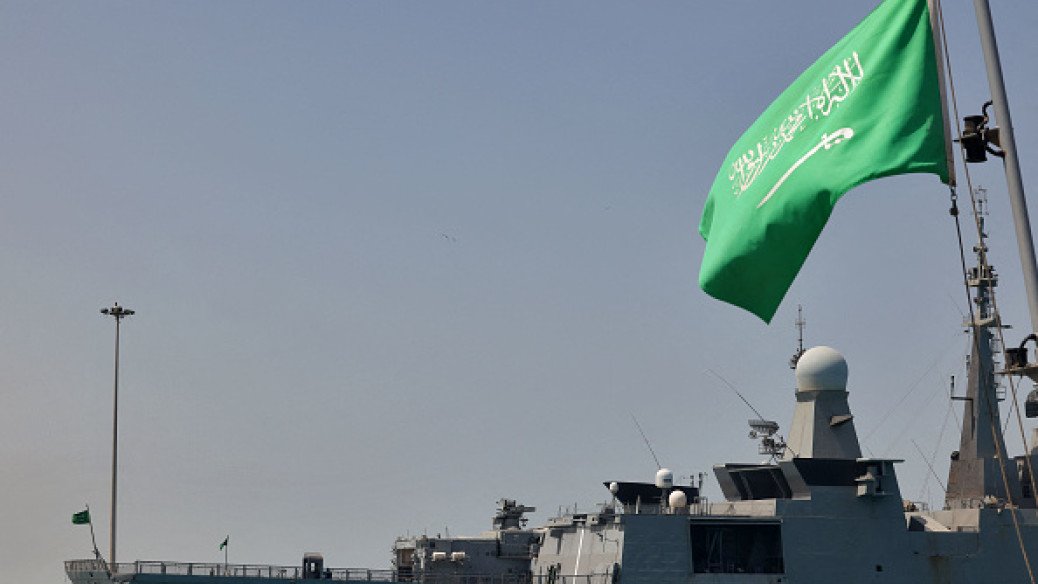
Maritime Muscle: Cairo and Riyadh Stage Massive Drill as Addis Ababa Sounds Alarm.
A major Red Sea naval exercise involving Egypt, Saudi Arabia, and key regional partners has sparked unease in Ethiopia, which views the growing maritime alliance as a potential threat to its long-term security and access to sea routes.
The exercise — known as Red Wave 8 — began this week in Saudi Arabia and brings together naval forces from Egypt, Saudi Arabia, Jordan, Sudan, Yemen, and Djibouti, the Egyptian military announced Tuesday.
The multi-day drills include simulations of asymmetric maritime threats, coordinated mission planning, and exercises aimed at improving interoperability among participating fleets.
Egypt said the operation is designed to strengthen coordination and enhance readiness among states bordering the Red Sea — one of the world’s most critical maritime corridors, linking the Suez Canal to the Indian Ocean and facilitating much of the trade between Asia, the Middle East, and Europe.
The participating countries are all members of a Red Sea alliance launched by Cairo and Riyadh in 2019.
The bloc, later joined by Eritrea, Sudan, Somalia, Djibouti, Jordan, and Yemen, aims to institutionalize regional maritime cooperation amid intensifying global competition along the Red Sea.
Djibouti, where the United States, China, France, and Japan each maintain military bases, has become a focal point of that rivalry.
India and Russia have also sought greater engagement in the Horn of Africa, while Turkey, Iran, and the Gulf states have deepened their defense and trade links with coastal governments.
Analysts say the Red Sea is increasingly crowded with competing military and intelligence interests, making stability there critical for global shipping and energy flows.
Ethiopia, which has no coastline but considers maritime access essential to its sovereignty and economy, has grown wary of the new alliance.
Ambassador Dina Mufti, a member of Ethiopia’s parliamentary foreign affairs committee, told the BBC that Egypt’s leadership of the bloc “is intended to isolate Addis Ababa diplomatically and economically.” She described Cairo as the dominant force in the grouping after Saudi Arabia.
Mufti’s comments reflect Ethiopia’s broader anxiety that regional naval cooperation could consolidate around states with shared security interests — excluding Addis Ababa at a time when it is seeking new port access through deals with Somaliland and Eritrea.
She did not specify what steps Ethiopia might take, but said the country “will push back diplomatically against efforts to sideline it.”
The Red Wave exercises underscore how Egypt and Saudi Arabia are leveraging defense diplomacy to shape the Red Sea’s evolving security order.
Landlocked Ethiopia finds itself on the periphery of a maritime competition that could redefine the balance of power along one of the world’s most vital waterways.
Red Sea
Somaliland and Puntland Crack Down on Iranian Illegal Fishing Fleets in the Gulf of Aden

Somaliland and Puntland forces seize dozens of foreign fishing boats, including Iranian and Yemeni vessels, in a coordinated maritime crackdown.
A rare display of maritime assertiveness has unfolded along the Somaliland and Puntland coast, where Somaliland and Puntland authorities have independently — and perhaps quietly in coordination — captured multiple foreign fishing vessels accused of plundering the region’s waters.
The operations, which took place over the past week, represent a significant escalation in local enforcement against illegal, unreported, and unregulated (IUU) fishing — an issue long neglected by international partners and central authorities in Mogadishu.
In Puntland, the Maritime Police Force (PMPF) led a sweeping crackdown that netted seven vessels, including three owned by Yemeni nationals and one belonging to Iranian operators.
Officials confirmed that two Yemeni boats have already faced trial in Baargaal District Court, resulting in fines and legal penalties under Puntland’s anti-illegal fishing laws.
Four additional vessels — one Yemeni and three Iranian — were escorted to Bosaso with 45 foreign crew members for prosecution.
Meanwhile, in Somaliland’s Zeylac district, the Coast Guard detained 21 boats and 102 individuals, including Somali and Yemeni nationals. The second Coast Guard base, which led the operation, was publicly commended for what officials described as “a decisive stand to defend national waters.”
All detained vessels, according to Somaliland authorities, were operating without licenses or permission.
Though officials in both administrations have stopped short of confirming joint operations, reliable sources told WARYATV that Somaliland and Puntland are now cooperating on coastal security, trade monitoring, and anti-smuggling efforts — an unprecedented move between two regions that have historically had strained relations.
A regional analyst familiar with maritime affairs described the arrests as “the first visible sign of synchronized enforcement along the Gulf of Aden coastline,” suggesting that “security pragmatism is slowly replacing political rivalry.”
The Gulf of Aden and Red Sea corridor — one of the world’s busiest maritime routes — has become a magnet for foreign fleets from Yemen, Iran, and occasionally East Asia, who exploit Somalia’s weak enforcement capacity and political fragmentation.
These illegal operations deplete fish stocks, devastate local livelihoods, and sometimes serve as fronts for smuggling networks and intelligence-gathering activities linked to foreign actors.
The capture of Iranian vessels is particularly sensitive. Tehran has been accused by regional states of using its fishing fleets for covert reconnaissance and arms transfers across the Arabian Sea.
Puntland’s decision to prosecute Iranian nationals directly is being read as a bold assertion of jurisdiction — and a signal that local administrations will no longer tolerate violations under the cover of diplomacy.
If indeed Somaliland and Puntland are coordinating, the implications reach beyond fisheries.
A maritime security partnership across their shared coastline could reshape regional control of the Red Sea gateway, creating a unified front capable of countering piracy, trafficking, and foreign exploitation — all without Mogadishu’s involvement.
For years, illegal fishing has symbolized Somalia’s sovereignty vacuum. Now, Somaliland and Puntland appear determined to reclaim not just their waters, but the political narrative surrounding them.
The question is whether this new assertiveness will invite cooperation from the international community — or confrontation with those who profit from the chaos at sea.
Red Sea
Ethiopia’s Letter to the World: The Sea Is No Longer Optional

Addis Ababa escalates its maritime campaign onto the UN stage, reframing access to the sea as both a national right and a regional security imperative.
Ethiopia’s renewed maritime ambition has entered a defining stage — one shaped as much by diplomatic finesse as by geopolitical tension. With the government’s letter to the United Nations accusing Eritrea of “hostile acts” and “nefarious designs,” Addis Ababa has transformed its quiet frustration into a calculated international campaign, arguing that access to the sea is no longer a political wish but a strategic necessity.
For more than thirty years, Ethiopia has endured the economic and logistical burden of being landlocked since Eritrea’s 1993 independence.
Prime Minister Abiy Ahmed’s administration now frames this dependence as a national security issue: a “geographic imprisonment” that undermines growth, energy exports, and regional influence.
In his letter, Foreign Minister Gedion Timothewos accused Eritrea of conspiring with remnants of the Tigray People’s Liberation Front (TPLF) to destabilize Ethiopia. Addis Ababa insists that Asmara’s hostility is driven by fear of Ethiopia’s growing strength and its lawful maritime ambitions.
Yet the letter makes one key distinction: Ethiopia seeks access to the sea through “institutionalized economic integration,” not annexation — a model built on mutual prosperity, not territorial revisionism.
This position reflects a larger strategic recalibration. Ethiopia’s 2024 Memorandum of Understanding with Somaliland — granting a 20-kilometer coastal lease in exchange for infrastructure and potential recognition — marked a dramatic shift from silence to strategy.
The deal, controversial but legal, turned Ethiopia’s long-theoretical “sea dream” into an actionable plan. Parallel discussions with Djibouti and Kenya’s LAPSSET corridor demonstrate that Addis Ababa is pursuing multiple maritime routes — to the Red Sea and the Indian Ocean — under one vision: diversified access through diplomacy and investment.
Abiy’s government is also invoking international law to strengthen its case. The UN Convention on the Law of the Sea (UNCLOS) guarantees landlocked states the right of transit, while the African Union’s maritime strategy encourages “land-linked” cooperation.
Ethiopia’s diplomatic argument is clear — this is not about revising borders but about unlocking fair economic mobility for 126 million people. Still, Ethiopia’s campaign tests the balance between ambition and restraint.
By internationalizing its dispute with Eritrea, Addis Ababa signals both confidence and caution — appealing to global partners to deter conflict while preserving the option of “non-indefinite restraint.” Whether Eritrea sees this as reassurance or provocation will determine if the Horn of Africa moves toward integration or instability.
Ethiopia’s message to the UN, however, carries a tone of inevitability. Sea access, once a quiet aspiration, has become a state doctrine. The question now is not whether Ethiopia will reclaim the sea, but under what terms — through confrontation, cooperation, or the new diplomacy of shared prosperity.
Red Sea
Houthi Expansion Into Sudan Threatens to Widen Red Sea Conflict
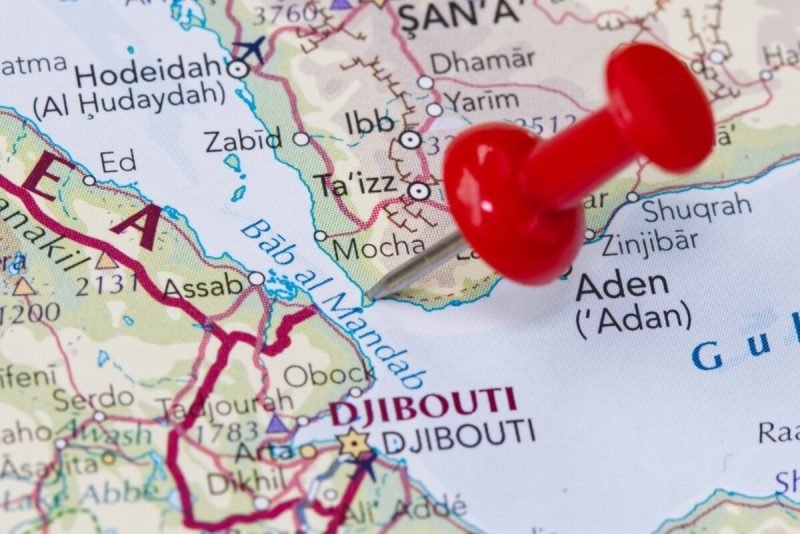
Nearly five months after President Donald Trump halted U.S. airstrikes on Yemen’s Houthis in exchange for a temporary pause in attacks on shipping, the Iran-backed movement has re-emerged with broader ambitions.
Recent strikes near the Saudi port of Yanbu underscored the Houthis’ capacity to reach deep into the northern Red Sea. Now, evidence suggests they are extending their footprint into Sudan—a shift that could fuse two regional wars and escalate threats to global trade.
The attacks on the Scarlet Ray and MSC Aby in early September marked a striking advance in range—nearly 600 miles from Yemen’s shores.
Former Yemeni defense official Hisham Maqdashi said the MSC Aby strike was launched from a fishing dhow, in contrast to earlier attacks off Hodeidah that relied on small boats. But a more troubling possibility is emerging: launches from Sudan’s Red Sea coast, less than 200 miles from the strike zones.
Sudan’s fractured conflict provides the Houthis with opportunity. As traditional smuggling routes through Oman and the Arabian Sea face tighter interdiction, Iran has turned to East Africa.
Long linked to Somali militants and pirates, the Houthis now appear to be cultivating access to Port Sudan with Iran’s backing. U.S. officials say Tehran has already transferred Mohajer-6 and Ababil drones, along with missile systems, to Sudan’s armed forces since late 2023.
The risk is that these channels could also provide Houthis with new reach—and potentially new weapons.
The implications are sobering. Control of facilities in Port Sudan would allow Iran and the Houthis to stage operations far from Houthi strongholds battered by U.S. and allied strikes.
It would also place key shipping lanes at greater risk just as insurers and operators are already rerouting vessels around Africa to avoid Houthi harassment.
The merging of Yemen’s and Sudan’s wars also carries darker possibilities. U.S. sanctions recently targeted Sudanese factions accused of using chemical weapons, raising fears that technology transfers through Iranian channels could one day give the Houthis access to more destructive tools.
For Washington and its allies, the risk is not only the resilience of a militant movement once thought cornered, but also the danger of underestimating its geographic ambitions.
As the Houthis adapt and Iran deepens ties with Sudan’s embattled leadership, the conflicts on both sides of the Red Sea are becoming entangled. Left unchecked, that convergence threatens to transform localized insurgencies into a broader regional war.
Red Sea
Red Sea Under Fire: Houthis Renew Maritime Terror as Iranian Proxies Ramp Up Attacks

Renewed assault on Red Sea shipping sparks global fears, highlighting dangerous revival of Iran-backed Houthi militias amid rising Middle East tensions.
First Red Sea naval strike in months signals a worrying comeback of Iranian-backed Houthi threats to international shipping, closely monitored from Somaliland’s strategic Berbera port amid escalating regional instability.
After months of uneasy calm, the Red Sea is again under threat. Sunday’s brazen attack on a vessel off Yemen’s Houthi-controlled Hodeidah port marks the worrying revival of maritime aggression by Iranian-backed militias. The Houthis previously targeted dozens of vessels, justifying their actions as supporting Palestine and challenging Western interests. This latest assault raises alarms that Tehran is again leveraging proxies to destabilize global shipping lanes.
The timing of the renewed strikes isn’t coincidental. Recent escalations—including a 12-day conflict between Israel and Iran, and simultaneous waves of drone attacks by Iranian-backed militias across Iraq—underscore a coordinated Iranian regional pushback. Despite earlier US airstrikes that temporarily deterred the Houthis, Tehran’s allies appear emboldened, sending a clear message: maritime commerce in the strategic Red Sea corridor is vulnerable.
Sunday’s attack involved multiple armed small vessels and possibly drone boats—methods hallmarking previous Houthi strikes. Such attacks threaten the trillion-dollar trade route through the Red Sea, impacting global commerce and regional stability. The incident has already triggered heightened vigilance at Somaliland’s key Berbera port, a critical maritime hub closely monitoring unfolding threats.
As regional tensions rise, this attack may herald broader Iranian-backed destabilization efforts, challenging international naval security and potentially drawing Western powers back into the volatile Red Sea theater. The strategic calculus is clear: Tehran and its proxies see maritime disruption as an effective means to amplify their geopolitical influence, complicating Western and Gulf responses.
The coming weeks will be crucial, determining whether this isolated strike signals a full-scale renewal of maritime threats or remains an isolated act of provocation. The international community, and especially regional stakeholders like Somaliland, must remain vigilant—failure to counter such provocations risks transforming the Red Sea into a chronic flashpoint of instability and confrontation.
Red Sea
Maritime Expert Challenges $180 Million Houthi ‘Extortion Fees’ Cited in UN Report
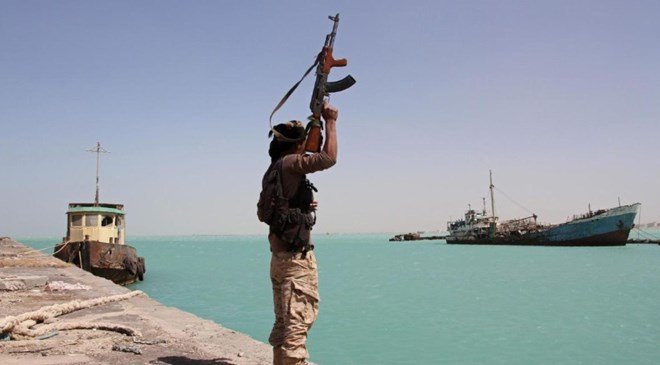
Recent allegations from a United Nations report suggesting Yemen’s Houthi rebels collect an estimated $180 million monthly from shipping companies for safe passage through the Red Sea are being met with skepticism from maritime law experts. Stephen Askins, a specialist in maritime law with Tatham & Co, voiced doubts over the feasibility of such substantial payments, describing the report’s figures as “unlikely” and logistically challenging.
According to the UN Panel of Experts on Yemen, the funds allegedly flow through informal networks linked to Houthi leaders, utilizing the hawala money-transfer system. The report asserts that these fees represent a significant source of funding for the Houthis as they intensify threats to shipping in the Red Sea, amid alleged alliances with Iran’s Revolutionary Guard, Hezbollah, and groups like al-Shabaab. This expanding network, the panel claims, provides the Houthis with enhanced financial and logistical coordination to threaten global maritime trade.
Askins, however, questioned the plausibility of the financial scope detailed in the UN findings. He noted that the estimated monthly sum closely resembles what was paid annually to Somali pirates at the height of piracy off Somalia’s coast. “This was done legally, with insurance industry backing,” he explained, underscoring the vast difference in scale. “If anything like this sort of money was being paid by mainstream shipping, I would know,” he stated, adding that shipowners already face high costs when rerouting around the Red Sea but are unlikely to risk penalties by engaging with a proscribed group without insurance coverage.
Drawing on his own experiences with hawala payments, Askins emphasized the logistical difficulties of handling such large sums discreetly. “Cash is heavy and bulky. Moving $10 million in cash is a serious endeavor, weighing roughly 100 kg,” he said. Askins observed that such high-volume, regular transactions through hawala systems would likely raise regulatory alarms, particularly in areas with rigorous financial oversight.
The report’s claims have nonetheless raised serious concerns within the shipping community. Some companies are already rerouting vessels around the Cape of Good Hope to avoid Red Sea passage, though at significant cost. For others, the choice to avoid paying alleged bribes in Houthi-controlled waters has left ships idle, impacting charters and increasing expenses.
Despite skepticism from Askins and others in the industry, the UN maintains that the Houthis have developed an extensive, organized network to exert control over strategic Red Sea routes. U.S. officials are also reportedly monitoring reports of potential Houthi collaborations with groups like al-Shabaab, which would align with Iran’s established proxy strategy to counter Western influence. Direct evidence remains limited, but the prospect of deeper alliances within the Red Sea’s maritime sphere continues to be closely watched by international security agencies.
Red Sea
How the Houthis Are Shaking the Foundations of Global Order
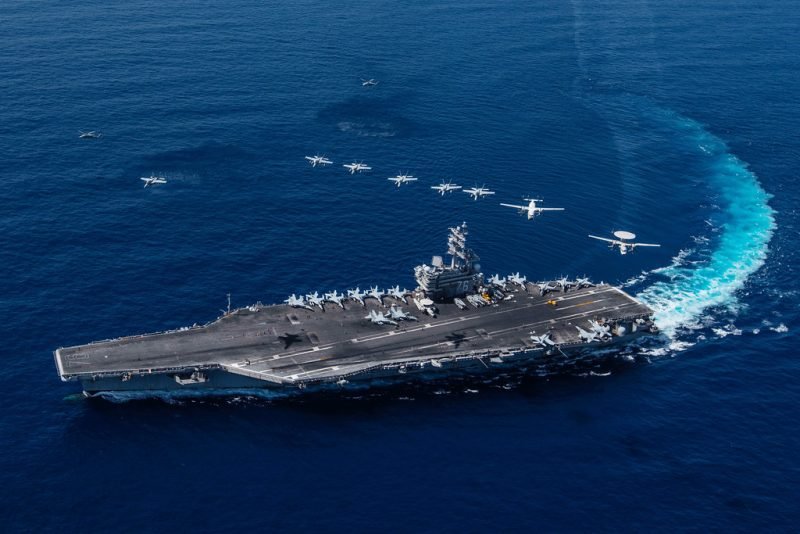
Yemen’s Houthis challenge the U.S. dominance in the Red Sea, revealing deep fractures in international stability
In a year marked by extraordinary upheavals, the most startling revelation might be the growing influence of Yemen’s Houthis. Once a relatively obscure faction, these rebels have launched a brazen assault on one of the world’s crucial maritime corridors: the Red Sea. Their aggression not only challenges the U.S. but also threatens the very fabric of global maritime stability.
The Houthis’ campaign began in earnest in late 2023, targeting the Bab el-Mandeb strait—a vital chokepoint linking the Red Sea to the Gulf of Aden. Their initial strikes, under the guise of supporting the Palestinian cause, have evolved into a broader strategy to assert dominance in the region. This offensive has been backed by Iran, which has supplied both the technology and expertise needed to conduct such high-impact attacks.
Washington’s response, Operation Prosperity Guardian, aimed to shield shipping lanes with defensive measures from U.S. destroyers and targeted strikes against Houthi capabilities. However, results have been disappointing. The Houthis have successfully disrupted Suez Canal traffic, devastated the Israeli port of Eilat, and recently damaged an oil tanker, raising the specter of an environmental catastrophe. What was once a strategic maritime route carrying up to 15% of global trade has now become a perilous zone of conflict.
The Houthis’ activities underscore two alarming trends. First, they illustrate the decreasing cost of projecting military power. Despite not being a conventional military powerhouse and lacking full control over Yemen, the Houthis have wielded drones and missiles to exert significant influence over crucial sea lanes.
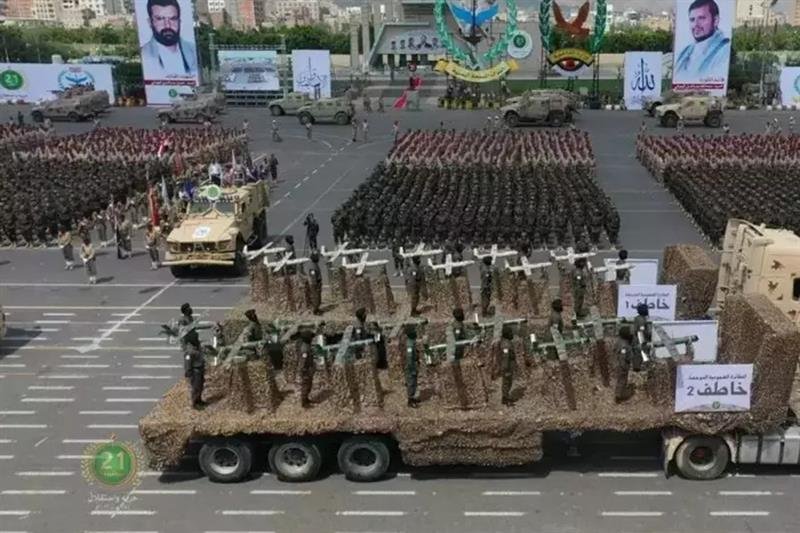
Second, their campaign highlights a troubling synergy among U.S. adversaries. The Houthis benefit from Iranian support and strategic guidance from Hezbollah, while China and Russia exploit the situation to weaken American influence. Beijing and Moscow’s passive encouragement—if not outright support—compounds the challenge for Washington, as they benefit from the distraction and strain on U.S. resources.
Adding to the complexity is America’s reluctance to escalate. The U.S. has avoided more aggressive measures, such as targeting Iranian intelligence ships or Houthi infrastructure, out of fear of exacerbating regional tensions. This cautious approach reflects broader military overstretch and a lack of readiness for a more intensive conflict, leaving the Houthis to dictate the tempo of the confrontation.
This restraint has allowed the Houthis to continue their disruptive actions with minimal repercussions. It signals a worrying trend where international norms, once considered bedrock principles, are being undermined. The global economic impact has been mitigated by adaptive shipping networks, but the precedent set by the Houthis’ actions threatens to erode the freedom of the seas.
As President Joe Biden focuses on other international issues, including the Israel-Hamas conflict, the Houthis’ challenge remains a growing concern. The muddled approach may prove unsustainable, especially with the presidential election on the horizon. The next administration will inherit a precarious situation in the Red Sea, facing the daunting task of restoring American authority and addressing the broader implications of this regional crisis.
The battle for the Red Sea is not just about maritime control; it’s a microcosm of the shifting global order. The Houthis’ defiance highlights the emerging power dynamics and the fragility of the international system, casting a long shadow over future geopolitical stability.
-

 Minnesota2 months ago
Minnesota2 months agoFraud Allegations Close In on Somalia’s Top Diplomats
-

 Middle East2 months ago
Middle East2 months agoTurkey’s Syria Radar Plan Triggers Israeli Red Lines
-

 Editor's Pick2 months ago
Editor's Pick2 months agoWhy India Is Poised to Become the Next Major Power to Recognize Somaliland
-

 ASSESSMENTS2 months ago
ASSESSMENTS2 months agoSomalia’s Risky Pact with Pakistan Sparks Regional Alarm
-

 Analysis2 months ago
Analysis2 months agoTurkey’s Expanding Footprint in Somalia Draws Parliamentary Scrutiny
-

 Analysis2 months ago
Analysis2 months agoRED SEA SHOCKER: TURKEY’S PROXY STATE RISES—AND ISRAEL IS WATCHING
-

 Somaliland1 month ago
Somaliland1 month agoF-35s Over Hargeisa: The Night Somaliland’s Sovereignty Went Supersonic
-

 Somalia2 months ago
Somalia2 months agoIs Somalia’s Oil the Price of Loyalty to Turkey? MP Blows Whistle on Explosive Oil Deal
































